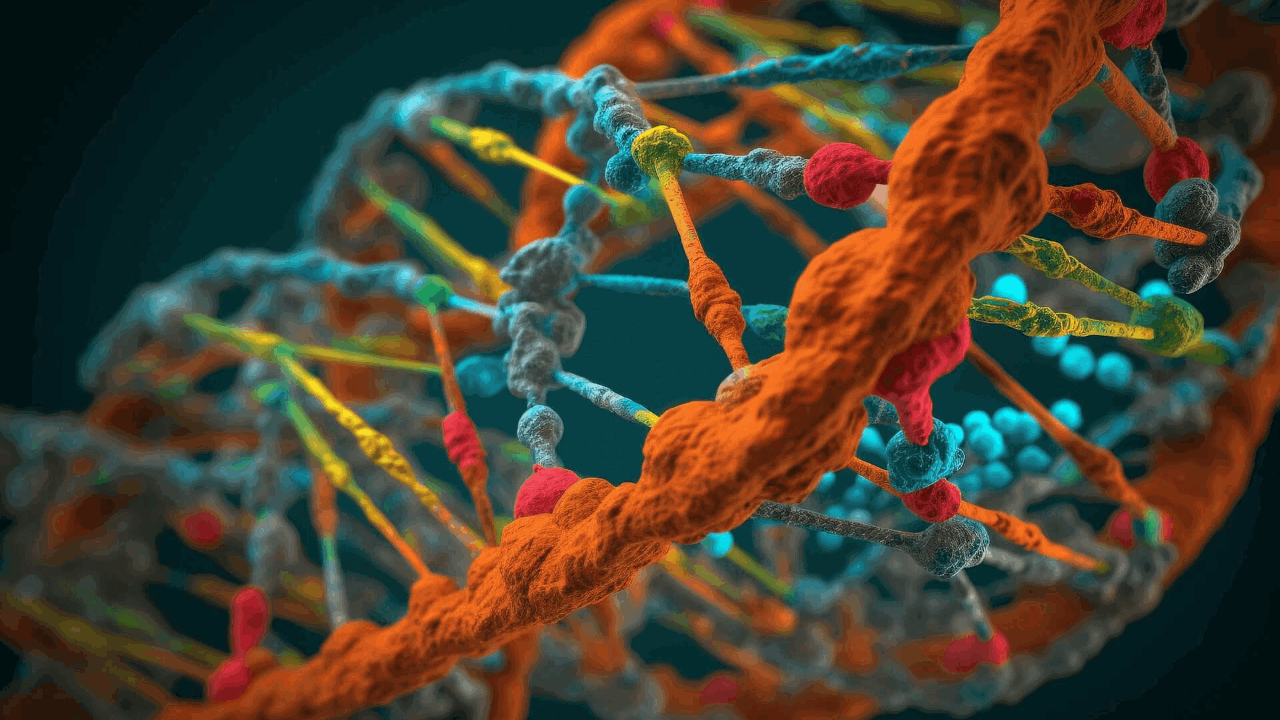预约演示
更新于:2025-05-07
Chaigui Granules
柴归颗粒
更新于:2025-05-07
概要
基本信息
关联
1
项与 柴归颗粒 相关的临床试验CTR20211955
柴归颗粒治疗轻中度抑郁症(肝郁脾虚证)有效性和安全性的随机、双盲、剂量探索、安慰剂平行对照、多中心Ⅱa期临床试验
以汉密尔顿抑郁量表(HAMD-17)减分值为主要疗效指标,初步探索柴归颗粒治疗轻中度抑郁症(肝郁脾虚证)的有效性及安全性,并进行剂量探索为后续临床试验提供数据支持。
开始日期2021-08-31 |
申办/合作机构 |
100 项与 柴归颗粒 相关的临床结果
登录后查看更多信息
100 项与 柴归颗粒 相关的转化医学
登录后查看更多信息
100 项与 柴归颗粒 相关的专利(医药)
登录后查看更多信息
16
项与 柴归颗粒 相关的文献(医药)2020-10-01·International Journal of Biological Macromolecules1区 · 化学
Effects of cellulose nanofibrils/graphene oxide hybrid nanofiller in PVA nanocomposites
1区 · 化学
Article
作者: Xu, Qianqian ; Jia, Yuanyuan ; Shi, Peidong ; Hu, Chunrui ; Liu, Rui ; Zhu, Wenjing
2020-06-01·Environmental Science and Pollution Research3区 · 环境科学与生态学
Investigation of fermentation conditions of biodiesel by-products for high production of β-farnesene by an engineered Escherichia coli
3区 · 环境科学与生态学
Article
作者: Qi, Wei ; Yao, Pin ; You, Shengping ; He, Zhimin ; Su, Rongxin
2019-09-11·Journal of Agricultural and Food Chemistry1区 · 农林科学
Limonoid 7-Deacetoxy-7-oxogedunin from Andiroba, Carapa guianensis, Meliaceae, Decreased Body Weight Gain, Improved Insulin Sensitivity, and Activated Brown Adipose Tissue in High-Fat-Diet-Fed Mice
1区 · 农林科学
Article
作者: Tanaka, Reiko ; Maehara, Toko ; Matsumoto, Chihiro ; Fujimori, Ko
3
项与 柴归颗粒 相关的新闻(医药)2023-08-12
点击蓝字关注我们本周,国内外热点不多,但是有几点值得重点关注。审评审批方面,国内首款乌司奴单抗生物类似药—华东医药/荃信生物HDM3001申报上市,有望成为国内首款上市的乌司奴单抗生物类似药。Sage口服抑郁药核心适应症被拒。强生CD3/GPRC5D双抗获FDA批准上市;研发方面,最值得关注的就是,美国15年来首个社交焦虑障碍在研疗法PH94B在Ⅲ期试验中获得积极结果。交易及投融资方面,德琪医药与翰森制药达成超7亿元商业化合作。本期盘点包括审评审批、研发、交易及投融资3大板块,统计时间为8.7-8.11,包含27条信息。 审评审批NMPA上市批准 1、8月10日,NMPA官网显示,丽珠集团4类仿制药布南色林片获批上市,用于治疗精神分裂症。该品种为国内第2款布南色林片仿制药,第一款来自石家庄四药。布南色林是一种5-HT2A受体拮抗剂和多巴胺D2受体拮抗剂,原研公司为住友制药(Sumitomo Pharma)、Almirall,于2017年2月在中国获批上市。申请2、8月11日,NMPA官网显示,华东医药与荃信生物合作开发的HDM3001申报上市。HDM3001属于乌司奴单抗生物类似药。乌司奴单抗是一款靶向IL-12和IL-23共有的p40亚基的单抗,原研由强生开发,于2017年11月在中国获批上市,用于对环孢素、甲氨喋呤或PUVA(补骨脂素和紫外线A)等其他系统性治疗不应答、有禁忌或无法耐受的成年中重度斑块状银屑病患者。临床批准 3、8月10日,CDE官网显示,质肽生物1类新药ZT002注射液第3项适应症获批临床,拟用于治疗阿尔茨海默病。ZT002是一款长效GLP-1受体激动剂,实现每月仅需注射1次。该产品用于成人肥胖或超重患者减重治疗,以及成人2型糖尿病患者的血糖控制的适应症均已在中国获批临床。4、8月10日,CDE官网显示,原启生物1类治疗用生物制品靶向GPRC5D嵌合抗原受体自体T细胞注射液(OriCAR-017注射液)获批临床,拟用于治疗复发难治性多发性骨髓瘤(R/R MM)。GPRC5D是一种G蛋白偶联受体,在多发性骨髓瘤细胞上的高表达,而在正常组织中的表达较低,是多发性骨髓瘤一种有潜力的治疗靶点。FDA上市 批准5、8月9日,FDA官网显示,Galera Therapeutics收到Avasopasem(GC4419)用于治疗接受标准治疗的头颈癌(HNC)患者因放疗引起的严重口腔粘膜炎(SOM)的NDA申请发出的完整回复函(CRL)。由于Ⅲ期ROMAN研究、Ⅱb期GT-201研究数据不足以证明该药在减少头颈癌患者严重口腔黏膜炎方面的有效性与安全性,因此需要重新递交额外的临床试验结果。Avasopasem是一种选择性小分子歧化酶模拟物。6、8月10日,FDA官网显示,强生的Talquetamab(TALVEY)获加速批准上市,用于治疗复发或难治性多发性骨髓瘤成人患者,这些患者先前至少接受过4种治疗,包括蛋白酶体抑制剂,免疫调节剂和CD38抗体。Talquetamab是一款first-in-class现货型双特异性T细胞结合抗体,能同时靶向MM细胞上的GPRC5D和T细胞上的CD3。申请7、8月7日,FDA官网显示,晖致(Viatris)和Mapi Pharma的醋酸格拉替雷(GA Depot,40mg)用于治疗复发型多发性硬化症的新药上市申请(NDA)获FDA受理,PDUFA日期定为2024年3月8日。GA Depot是Viatris和Mapi Pharma基于格拉替雷合作开发的长效注射制剂,可将注射频率从每周3次降低至每月1次。临床批准8、8月7日,FDA官网显示,亚盛医药的Lisaftoclax(APG-2575)获批开展一项全球关键注册性Ⅲ期临床研究,用于治疗既往接受治疗的慢性淋巴细胞白血病(CLL)/小淋巴细胞淋巴瘤(SLL)患者。APG-2575是亚盛医药自主研发的新型口服Bcl-2选择性抑制剂。罕见儿科疾病认定(RPDD)9、8月7日,FDA官网显示,辉大基因的HG004注射液被授予罕见儿科疾病认定(RPDD),用于治疗由RPE65突变引起的遗传性视网膜疾病。HG004注射液是一种新型眼科基因治疗药物,旨在用于治疗RPE65基因突变相关性视网膜病变。研发临床状态10、8月7日,礼进生物宣布,抗体三联用药Ⅰ期临床试验完成首例患者给药,旨在探索礼进生物的CD137激动性抗体LVGN6051、 CD40激动性抗体LVGN7409、PD-1阻断抗体LVGN3616与现有化疗联合使用的临床安全性及抗肿瘤疗效。11、8月10日,Clinicaltrials.gov官网显示,辉瑞登记了一项Zavegepant鼻喷雾剂用于成人有或无先兆偏头痛的急性期治疗的Ⅲ期临床研究(CTR20232410)。Zavegepant是一款高选择性、高亲和力、结构独特的第三代小分子降钙素基因相关肽(CGRP)受体拮抗剂。12、8月10日,药物临床试验信息公示与登记平台显示,博安生物登记了一项LY01015与Opdivo分别联合氟尿嘧啶和顺铂用于治疗晚期或转移性食管鳞癌患者的Ⅲ期临床研究(CTR20232393)。LY01015是国内首个按照治疗用生物制品3.3类注册分类获批临床的Opdivo生物类似药。13、8月10日,药物临床试验信息公示与登记平台显示,齐鲁制药启动了一项注射用QLF3108用于晚期实体瘤的I 期临床试验(CTR20232436)。QLF3108是由齐鲁制药研发的1类新药,已披露信息显示,该靶点同类药物中,国外仅有1家处于临床I期开发阶段。14、8月11日,药物临床试验信息公示与登记平台显示,神州细胞/北京诺宁生物科技登记了一项重组十四价人乳头瘤病毒(HPV)疫苗SCT1000用于预防HPV6,11,16,18,31,33,35,39,45,51,52,56,58,59型HPV病毒感染所致的宫颈、外阴、阴道和肛门癌症,上皮内瘤样病变和AIS以及生殖器疣的Ⅲ期临床试验(CTR20232472)。15、8月11日,药物临床试验信息公示与登记平台显示,礼来登记了一项口服小分子GLP-1R激动剂Orforglipron治疗肥胖或超重伴体重相关合并症患者的Ⅲ期临床试验(ATTAIN-1)。Orforglipron是一种新型、高效、口服的非肽类GLP-1R激动剂。临床数据16、8月7日,伟德杰生物宣布,VDJ-001注射液在治疗类风湿关节炎的Ⅱ期取得积极结果。结果显示,该药在181例对甲氨蝶呤(MTX)响应不佳中重度活动性受试者中安全有效,且其6mg/kg组的最高缓解率(ACR70)可使33.3%的患者获益,这一比例超出对照药近30%,且高于其他上市药物的历史临床数据。VDJ-001是一款靶向IL-6R的重组人源化单克隆抗体。17、8月7日,Vistagen宣布,PH94B鼻喷剂在治疗社交焦虑症(SAD)成人患者的Ⅲ期PALISADE-2试验达到主要终点。与安慰剂相比,试验组患者在公开演讲挑战中表现出平均主观痛苦单位量表(SUDS)评分显著快速下降。PH94B是一款潜在“first-in-class”、无味、快速起效(约10-15分钟)的信息素鼻喷剂,中国权益归蔼睦医疗所有,已在中国获批开展Ⅲ期临床研究。18、8月7日,高光制药宣布,TLL-018在治疗中重度斑块状银屑病的多中心Ⅰb期取得积极结果。结果显示,治疗12周时,TLL-018高、中、低剂量组的疗效明显高于安慰剂,尤其是高剂量组的疗效明显。TLL-018是一款高选择性双靶点TYK2/JAK1抑制剂。19、8月8日,诺和诺德宣布,每周一次皮下注射司美格鲁肽(2.4 mg)在超重或肥胖合并心血管疾病且不伴糖尿病的患者中预防主要不良心血管事件(MACE)发生风险效果的Ⅲ期SELECT取得积极结果。结果显示,与安慰剂相比,该药治疗的患者MACE降低了20%,具有统计学显著性和优越性。20、8月8日,TERNS(拓臻生物)宣布,TERN-501治疗非酒精性脂肪性肝炎(NASH)的Ⅱa期DUET研究取得积极结果。结果显示,TERN-501可以显著降低患者的肝脏脂肪含量。TERN-501是一种甲状腺激素受体β(THR-β)激动剂,与其他正在开发的同类产品相比,其具有高代谢稳定性、高肝靶向性和更高的THR-β选择性。21、8月9日,诺华宣布,Remibrutinib用于慢性自发性荨麻疹(CSU)的Ⅲ期REMIX-1和REMIX-2两项研究均取得积极结果,达到所有主要终点和次要终点。Remibrutinib是一种新型、口服共价不可逆BTK抑制剂。CSU是一种不可预测的全身性皮肤病,其特征是皮肤上自发和反复出现风团或血管性水肿,伴有瘙痒和/或疼痛感,持续至少6周。22、8月9日,凌科药业宣布,LNK01001治疗特应性皮炎的Ⅱ期取得积极结果。结果显示,试验达到主要终点,患者病情显著改善,且试验中总体耐受性良好。LNK01001是凌科药业在研的一款选择性JAK1抑制剂。交易及投融资23、8月7日,亚宝药业宣布,与山西大学签订一项技术转让协议。亚宝药业以2600万元受让山西大学拥有的中药第6.1类(现行分类1.1类)柴归颗粒的临床试验批件、专利权及相关技术资料。柴归颗粒主治疏肝解郁,健脾养血,适用于轻、中度抑郁症并属肝郁脾虚证者。24、8月8日,康希诺生物宣布,与阿斯利康签订一项产品供应合作框架协议。康希诺将向阿斯利康提供合同开发和生产服务以支持其mRNA疫苗项目,生产和供应特定产品,并提供相关特定服务。康希诺的mRNA技术平台,可得到影响稳定性的关键位点及有效提高抗原表达量的最优序列。25、8月10日,华东医药与Arcutis宣布,就罗氟司特在大中华区以及东南亚地区的开发、生产和商业化达成战略合作和许可协议。华东医药将获得新一代磷酸二酯酶4(PDE4)抑制剂罗氟司特(Roflumilast)乳膏和泡沫制剂的独家许可,用于治疗多种皮肤病,包括斑块状银屑病、脂溢性皮炎和特应性皮炎,以及未来其他皮肤病。26、8月10日,诺和诺德与Inversago Pharma宣布,如果实现某些开发和商业里程碑,诺和诺德将以高达10.75亿美元的现金收购Inversago。Inversago是一家总部位于加拿大蒙特利尔的私营公司,致力于开发基于CB1受体的疗法,用于治疗肥胖、糖尿病和与代谢紊乱相关的并发症。Inversago公司的领先资产为一款口服CB1可逆激动剂INV-202。27、8月11日,德琪医药与翰森制药宣布,双方签订关于在中国大陆地区商业化塞利尼索片(商品名:希维奥)等包含或由塞利尼索组成的产品的合作协议。德琪医药将从翰森制药获得最高达人民币2亿元的首付款,以及最高达人民币5.35亿元的里程碑付款。塞利尼索是一款全新机制的口服选择性核输出蛋白(XPO1)抑制剂。智药研习社近期课程报名来源:CPHI制药在线声明:本文仅代表作者观点,并不代表制药在线立场。本网站内容仅出于传递更多信息之目的。如需转载,请务必注明文章来源和作者。投稿邮箱:Kelly.Xiao@imsinoexpo.com▼更多制药资讯,请关注CPHI制药在线▼点击阅读原文,进入智药研习社~
临床3期生物类似药上市批准
2023-08-08
·药研发
「 本文共:16条资讯,阅读时长约:3分钟 」今日头条兴齐眼药改良型伏立康唑上Ⅰ期临床。兴齐眼药2.2类化药伏立康唑滴眼液针对真菌性角膜炎适应症的Ⅰ期临床首例受试者入组。伏立康唑属于广谱的三唑类抗真菌药,能抑制真菌麦角甾醇的生物合成,对念珠菌、曲霉菌等真菌均具有杀菌作用。该项试验拟通过健康受试者的单次及多次给药,评估伏立康唑滴眼液在健康受试者中的安全性、耐受性和药代动力学特征。国内药讯1.康方PD-1/VEGF双抗肺癌Ⅱ期临床见刊。康方生物PD-1/VEGF双抗依沃西单抗注射液(AK112)联合化疗治疗晚期非小细胞肺癌(NSCLC)的Ⅱ期临床研究结果发表于《柳叶刀》子刊eClinical Medicine上。结果显示,AK112联合化疗一线治疗晚期NSCLC,治疗EGFR-TKI进展的EGFR突变的晚期非鳞NSCLC,以及治疗经PD-1抑制剂联合含铂双药化疗治疗进展的晚期NSCLC,均具有良好的抗肿瘤活性和安全性,为该患者群体提供潜在的新治疗选择。目前,该药的上市申请已获得CDE受理。2.辉大眼科基因疗法获罕见儿科疾病认定。辉大基因基于CRISPR基因编辑技术开发的新型眼科基因治疗药物HG004获得FDA授予罕见儿科疾病认定,用于治疗由RPE65突变引起的遗传性视网膜疾病。HG004旨在利用重组腺相关病毒载体将功能性人类RPE65基因递送到视网膜,以恢复RPE65的功能。此前,该公司已在中美两国取得HG004的临床批件,计划同步开展国际多区域临床试验。3.信达PD-1/IL-2双抗临床前研究见刊。信达生物PD-1/IL-2双特异性抗体融合蛋白IBI363的临床前核心机制研究结果发表在Nature子刊Nature Cancer上。研究显示,该产品IL-2臂采用α-biased设计,在提高疗效的同时降低IL-2相关毒性,而PD-1结合臂可以实现对PD-1的阻断和IL-2的选择性递送;IBI363能同时阻断PD-1/PD-L1通路和激活IL-2通路,更高效地实现对肿瘤特异性T细胞的靶向和激活。目前IBI363在中国和澳大利亚针对晚期实体瘤或淋巴瘤开展I期临床。4.映恩Trop2-ADC授权BioNTech。映恩生物宣布与BioNTech达成新的合作协议,将其专有DITAC平台开发的第三代Trop2靶向ADC药物DB-1305的全球范围内(不包括中国大陆、香港及澳门)的商业化权利授予BioNTech公司。目前,DB-1305正在Ⅰ/Ⅱ期临床在评估用于实体肿瘤的治疗潜力。今年4月,映恩生物已与BioNTech达成独家许可协议,授予BioNTech在全球(不包括中国大陆、香港和澳门地区)开发、生产及商业化两款ADC(DB-1303和DB-1311)的权利。5.亚宝药业引进山西大学1.1类中药。亚宝药业与山西大学就后者开发的1.1类中药“柴归颗粒”签订技术转让协议。柴归颗粒主治疏肝解郁,健脾养血,适用于轻、中度抑郁症并属肝郁脾虚证者。根据协议,山西大学需完成IIa期临床试验并向亚宝药业提供试验总结报告;如果试验结果符合预期,亚宝药业将负责后续的开发工作。此项交易金额为2600万。6.启明医疗人工肺动脉瓣膜获批临床。启明医疗宣布其自主研发的经导管人工肺动脉瓣膜置换(TPVR)系统VenusP-Valve的研究性器械豁免(IDE)申请获得FDA完全批准,即将在美国开展临床研究。VenusP-Valve是III类心血管植入类医疗器械,已于去年4月获得欧盟CE MDR认证。VenusP-Valve欧洲三年期随访数据显示,64例接受TPVR手术的患者(尚有部分患者由于新冠疫情未能计入)手术成功率为100%,全因死亡率及手术再干预率均为0。国际药讯1.安斯泰来C5抑制剂眼科适应症获批上市。安斯泰来补体C5抑制剂avacincaptad pegol玻璃体内注射液(Izervay)获FDA批准上市,用于治疗年龄相关性黄斑变性(AMD)引起的地图样萎缩(GA)。在两项III期临床(GATHER1和GATHER2)中,与假性注射相比,Izervay治疗在基线至12个月内GA面积的平均增长率分别显著降低35%(p=0.0050)与18%(p=0.0039)。此前,该疗法曾被FDA授予用于治疗GA的突破性疗法认定。2.第五代头孢抗生素在美报NDA。Basilea公司第五代头孢抗生素ceftobiprole(头孢比罗酯)已向FDA提交新药申请,用于治疗金黄色葡萄球菌菌血症(SAB)、急性细菌性皮肤和皮肤结构感染(ABSSSI)和社区获得性细菌性肺炎(CABP)。在III期ERADICATE研究中,头孢比罗酯治疗SAB患者的效果非劣效于达托霉素(69.8%vs68.7%);在TARGET研究中,头孢比罗酯用于ABSSSI患者的缓解率非劣效于万古霉素联合氨曲南治疗(91.3%vs88.1%);在III期研究中,头孢比罗酯在CABP患者中的临床治愈率非劣效于头孢曲松联合利奈唑胺治疗方案(86.6%vs87.4%)。华润三九拥有该新药的中国权益。3.晖致每月1次MS新药在美报NDA。晖致与Mapi Pharma开发的长效注射制剂GA Depot(醋酸格拉替雷,40mg)用于治疗复发型多发性硬化症(MS)的新药申请(NDA)获FDA受理,PDUFA日期为2024年3月8日。在Ⅲ期临床中,与安慰剂相比,GA Depot使患者的年复发率显著降低了30.1%。格拉替雷是一款MHC-II调节剂,原研产品由梯瓦开发,商品名为Copaxone,已于1996年在美国获批用于治疗多发性硬化症。4.FIC社恐新药III期研究积极。Vistagen公司潜在“first-in-class"鼻喷雾剂PH94B(fasedienol)治疗社交恐惧症(SAD)的III期PALISADE-2研究结果积极。与安慰剂相比,PH94B治疗显著改善患者的主观焦虑量表评分(-13.8分vs-8.0分),显著提高患者的临床应答率(40.6%vs18.6%);此外,PH94B的耐受性良好,未见报告严重不良事件。蔼睦医疗拥有该产品在中国、韩国和东南亚地区的开发和商业化权益。5.基孔肯雅病毒疫苗达Ⅲ期临床主要终点。Bavarian Nordic公司基于佐剂病毒样颗粒(VLP)的基孔肯雅病毒候选疫苗CHIKV VLP(PXVX0317)用于成人和青少年接种的Ⅲ期临床达到所有共同主要终点。单次接种后第22天,有98%疫苗接种者中可诱导强烈的基孔肯雅中和抗体;而且有86%的受试者在接种后6个月仍具有达血清保护性的中和抗体水平。CHIKV VLP总体良好耐受性,不良事件主要为轻中度。6.HER2靶向CAR-IMANs临床前研究积极。LIfT BioSciences公司基于第二代N-LIfT平台开发的靶向HER2的CAR-中性粒细胞疗法,在离体患者类肿瘤模型中的临床前研究结果积极。研究显示,与未经修饰的免疫调节性α中性粒细胞(IMANs)相比,HER2 CAR-IMANs的肿瘤杀伤力增强了4倍,有望实现所有实体肿瘤治疗的完全缓解潜力。今年5月,该公司已对外宣布其中性粒细胞输注疗法IMAN在临床前表现出对胰腺癌类肿瘤的有效杀伤。医药热点1.上海市发布医疗纠风工作要点。8月7日,上海市卫健委联合13部门发布《关于印发上海市2023年纠正医药购销领域和医疗服务中不正之风工作要点的通知》,公布本年度上海市医疗纠风的工作要点,以及13部门任务分工表、医疗机构行风建设自查自纠表。《工作要点》指出要整治行业组织存在的不正之风问题。重点是各级各类行业组织或学(协)会在工作或推进业务主管部门委托事项过程中的不正之风问题,尤其关注新型、隐蔽的,以“捐赠”、学术活动、举办或参加会议等名义变相摊派,为非法输送利益提供平台,违规接受捐赠资助等问题。2.华西四院引进29款新药。8月7日,四川大学华西第四医院发布通知,拟公开引进29款新药以满足临床用药需求。29个拟引进的新药中,独家品种占比超过30%,包括7款化学药和2款中成药。其中,开喉剑喷雾剂(儿童型)是贵州三力制药的独家儿科中成药,对手足口病、咽喉炎、扁桃体炎、疱疹性咽峡炎、口腔溃疡等儿童常见的呼吸道感染性疾病治疗有明显优势。3.跨国药企2023H1营收Top10出炉。根据跨国药企2023第二季度财报,2023上半年营收Top10依次是:强生(502.76亿美元,+6%)、罗氏(342.25亿美元,-2%)、辉瑞(310.15亿美元,-42%)、默沙东(295.22亿美元,-3%)、诺华(265.75亿美元,5%)、艾伯维(260.90亿美元,-7%)、赛诺菲(237.48亿美元,4%)、百时美施贵宝(225.37亿美元,-4%)、阿斯利康(222.95亿美元,4%)、葛兰素史克(181.65亿美元,-2%)。评审动态 1. CDE新药受理情况(08月02日) 2. FDA新药获批情况(北美08月04日)股市资讯上个交易日 A 股医药板块 +1.28%涨幅前三 跌幅前三C 金 凯 +24.04% 华纳药厂 -4.22%科源制药+20.00% 九典制药 -3.73%北陆药业+10.75% 一 品 红 -3.52%【亨迪药业】硫酸阿托品获得化学原料药上市申请批准通知书,用于抗胆碱药,胃与十二指肠溃疡、胃肠道、肾、胆绞痛,散瞳检查及验光,角膜炎、虹膜睫头体炎和麻醉前给药等,亦用于有机磷杀虫剂的中毒,感染性休克及锑制剂所引起的急性心源性脑缺血综合症等。【国药一致】2023年上半年,公司实现营业收入383.88亿元,同比增长6.25%;营业利润12.95亿元,同比增长25.45%;归属于上市公司股东的净利润8.30亿元,同比增长23.14%。【康希诺】公司与阿斯利康签署《产品供应合作框架协议》,将向阿斯利康提供合同开发和生产服务以支持其mRNA疫苗项目,生产和供应特定产品,并提供相关特定服务。- The End -戳“阅读原文”,了解更多医药研发及股市资讯。
基因疗法临床结果临床1期临床2期抗体药物偶联物
2023-08-08
药物研发进展
1.第五代头孢抗生素在美申报上市,华润三九拥有中国权益
8月4日,Basilea Pharmaceutical宣布已向FDA递交头孢比罗酯(ceftobiprole)用于治疗金黄色葡萄球菌菌血症(SAB)、急性细菌性皮肤和皮肤结构感染(ABSSSI) 和社区获得性细菌性肺炎(CABP)的新药申请(NDA)。此次NDA主要基于3项III期研究的积极数据。在390例成年SAB患者中进行的III期ERADICATE研究中,头孢比罗酯组的治疗成功率非劣效于达托霉素组(69.8% vs. 68.7%);在679例成年ABSSSI患者中进行的III期TARGET研究中,头孢比罗酯组的早期临床应答率(给药48-72h后,患者的病灶面积至少减小20%)非劣效于万古霉素联合氨曲南组(91.3% vs. 88.1%);在706例成年CABP患者中进行的III期研究中,头孢比罗酯组的临床治愈率非劣效于头孢曲松联合利奈唑胺组(86.6% vs. 87.4%)。头孢比罗酯已被授予合格传染病产品(QIDP)资格,根据美国的《立即产生抗生素激励(GAIN)》法案,FDA需在QIDP产品提交上市申请的8个月内对其进行优先审评。如果头孢比罗酯的NDA被FDA受理,Basilea预计该机构将在2024年第二季度做出审批决定。头孢比罗酯是第五代头孢抗生素,其活性形式头孢比罗可快速杀灭多种革兰氏阳性细菌(如金黄色葡萄球菌,包括耐甲氧西林菌株)和革兰氏阴性菌。该产品已在欧洲和中国获批上市,用于治疗医院获得性细菌性肺炎(HABP)的成年患者(不包括呼吸机相关性细菌性肺炎(VABP))以及CABP。华润三九拥有头孢比罗酯的中国权益。
2.赛诺菲/阿斯利康RSV长效抗体Beyfortus获美国疾控中心ACIP一致推荐
8月3日,美国疾病预防与控制中心(CDC)免疫实践咨询委员会(ACIP)以10:0的投票结果一致推荐Beyfortus(nirsevimab,尼塞韦单抗)用于预防婴儿由RSV引起的下呼吸道疾病;为即将进入或在第一个RSV流行季期间出生的新生儿和8个月以下婴儿提供保护。RSV是引起婴儿严重呼吸道感染的重要病原,也是导致婴幼儿住院的首要原因。RSV感染不能产生永久性免疫,不能保护儿童免于再次感染。免疫实践咨询委员会(ACIP)是由独立的健康专家组成的机构,为CDC提供疫苗使用人群和规范的建议。Beyfortus得到了该委员会(ACIP)的一致推荐:8至19个月易感染严重RSV疾病的婴幼儿在进入第二个RSV流行季时继续接种Beyfortus。Beyfortus将成为美国首个纳入疾控中心(CDC)疫苗管理的长效单克隆抗体,为所有婴儿提供RSV预防保护。此外,ACIP还一致推荐将Beyfortus纳入儿童疫苗计划(VFC)。该计划旨在帮助那些无法负担疫苗接种费用的父母或监护人,确保所有儿童都有机会按时接种推荐的疫苗。ACIP的推荐将递交至美国疾病预防与控制中心及美国卫生与公众服务部进行复核及批准。一旦获得最终批准,Beyfortus将会被纳入美国疾病预防与控制中心的儿童和青少年免疫规划。Beyfortus由赛诺菲(Sanofi)和阿斯利康(AstraZeneca)联合开发,将于2023-2024年RSV流行季前在美国上市。RSV是一种在婴幼儿人群中常见的呼吸道病毒,可引起毛细支气管炎和肺炎等下呼吸道感染(LRTIs),也是导致婴幼儿住院的首要原因。
3.亚盛医药Bcl-2抑制剂lisaftoclax在美国获批关键3期临床
8月7日,亚盛医药宣布,美国FDA已同意其核心产品Bcl-2选择性抑制剂lisaftoclax(APG-2575)开展一项全球关键注册性3期临床研究,用于治疗既往接受治疗的慢性淋巴细胞白血病(CLL)/小淋巴细胞淋巴瘤 (SLL) 患者。亚盛医药新闻稿表示,这标志着APG-2575的国际临床开发获得重大进展,是继该品种于2021年12月获中国国家药监局药品审评中心(CDE)批准开展用于治疗R/R CLL/SLL患者的关键注册2期临床研究后的又一重要里程碑。CLL/SLL是成人白血病的常见类型,全球每年新增病例超过10万例。尽管当前的一线治疗,如免疫疗法、化疗和BTK抑制剂对初治患者有显著反应,但复发和耐药是主要的临床挑战。CLL/SLL的治疗中仍存在着显著的、未满足的临床需求,迫切需要新的治疗选择。APG-2575是亚盛医药自主研发的新型口服Bcl-2选择性抑制剂,通过选择性抑制Bcl-2蛋白,恢复癌细胞的正常凋亡过程,从而达到治疗肿瘤的目的。根据亚盛医药新闻稿介绍,APG-2575目前正在全球范围内开展19项临床研究。迄今为止,已有600多名患者接受了该产品治疗,其中包括300多名CLL/SLL患者。过往研究表明,APG-2575在CLL/SLL患者中具有较好的单药和联合治疗潜力,是一种更安全、有效且便捷的治疗选择。据悉,本次APG-2575在美国获批的是一项全球多中心、随机对照的注册3期临床试验(APG2575CG301),旨在评估APG-2575联合布鲁顿酪氨酸激酶抑制剂(BTKi)用于治疗既往接受治疗的慢性淋巴细胞白血病(CLL)/小淋巴细胞淋巴瘤 (SLL)患者中的疗效和安全性。该研究将于2023年下半年启动。
4.康方生物PD-1/VEGF双抗最新肺癌研究结果在《柳叶刀》子刊发布
8月6日,康方生物发布新闻稿称,中山大学肿瘤防治中心张力教授牵头开展的PD-1/VEGF双抗AK112(依沃西单抗)联合化疗治疗晚期非小细胞肺癌(NSCLC)的2期临床研究结果,已在国际医学期刊《柳叶刀》旗下子刊eClinical Medicine全文发表。不久前,该药已在中国递交新药上市申请。免疫联合抗血管生成药物(抗PD-1/PD-L1抗体联合抗VEGF抗体)的协同作用在晚期NSCLC治疗中已被验证,然而抗PD-1抑制剂联合抗血管生成药物联合化疗的四药联合方案虽然显著提升患者生存率,但整体疗效和耐受性仍有提升空间。康方生物研发的双抗新药AK112可阻断PD-1与PD-L1和PD-L2的结合,并同时阻断VEGF与VEGF受体的结合。鉴于VEGF和PD-1在肿瘤微环境中的共表达,与联合疗法相比,AK112作为单一药物同时阻断这两个靶点,可能有更好阻断效果,从而增强抗肿瘤活性。张力教授牵头的这项开放标签、多中心、2期临床研究,初步验证了AK112联合化疗治疗晚期NSCLC具有良好的疗效和耐受性。结果显示,AK112联合化疗一线治疗无驱动基因突变的晚期NSCLC,治疗EGFR-TKI进展的EGFR突变的晚期非鳞NSCLC,以及治疗既往抗PD-1治疗联合含铂双药化疗治疗进展的晚期NSCLC,均具有良好的抗肿瘤活性和安全性,为该患者群体提供了有价值的潜在新治疗选择。相关研究及更新结果也曾相继被2021美国临床肿瘤学会(ASCO)年会和2023年ASCO年会报道。
5、88%患者3个月后获完全缓解,溶瘤病毒疗法新锐推进III期临床
近日,CG Oncolog宣布完成1.05亿美元的超额认购融资,该资金将用于推进其针对膀胱癌的处于后期临床开发阶段的溶瘤病毒疗法cretostimogene grenadenorepvec(CG0070),以获得FDA的批准。该公司的主要候选药物CG0070是一种膀胱内给药的溶瘤病毒疗法,基于一种改造的5型腺病毒(Ad5)骨架,包括一个肿瘤特异性启动子,和一个粒细胞-巨噬细胞集落刺激因子(GM-CSF)转基因。在裂解肿瘤细胞后,GM-CSF与肿瘤特异性抗原和其他危险信号一起释放。GM-CSF可以激活树突状细胞(DC),DC细胞识别肿瘤抗原,并将其呈递给细胞毒性和辅助性T细胞,从而促进其成熟。然后,这些T细胞能够在整个身体中循环,识别并攻击残留的肿瘤细胞。目前,CG0070处于单药治疗卡介苗(BCG)无应答的非肌层浸润性膀胱癌(NMIBC)患者的3期临床试验BOND-003中。作为单一疗法时,CG0070表现出了潜在“best-in-class”的疗效和安全性,在与免疫检查点抑制剂联合使用时,联合疗法展现了强大的响应率。此前,CG Oncology曾公布了2期临床试验CORE-001的积极中期数据。截至2022年10月10日的数据,88%(28/32)可评估疗效的患者在接受治疗3个月的时间点达到完全缓解(CR)。在其他时间点可评估CR的患者中,88%(23/26)的患者在6个月内、86%(18/21)的患者在9个月以及73%(11/15)的患者在12个月评估时也保持了CR。
6.璃道医药开发创新离子通道药物
8月7日,上海璃道医药科技有限公司(简称“璃道医药”)宣布完成数千万元A轮融资,开发创新离子通道药物。璃道医药的LDS片以瞬时受体电位通道为核心靶点构建了全新的多模式镇痛机制,目前正在开展临床1期研究。试验数据显示,LDS片在人体中口服吸收快,半衰期长,可实现一天服药一次,显著提升患者的用药依从性。此外,炎症性肠病(IBD)作为慢性免疫介导的胃肠道炎症性疾病综合征,临床存在巨大的未满足需求。LD09163是璃道医药开发的治疗IBD的新型离子通道药物,该药口服后可以高选择性地富集在胃肠道部位,提高靶组织的药物浓度并降低全身的毒副作用,在不同药效模型上均表现较好。该药目前处于中美双申报的IND-enabling阶段。璃道医药成立于2016年,是一家处于临床研究阶段的创新离子通道药物研发公司。离子通道与神经精神类疾病、自身免疫疾病等多类疾病密切相关,但该领域面临的挑战诸多,比如靶点的检测技术限制、对药物的特异性要求高、对靶点结构了解有限、病理机制复杂等,导致了目前上市的新型离子通道药物较少。璃道医药创始团队在离子通道基础研究和药物开发领域深耕多年,公司现已搭建系统、完善且具有创新性的离子通道药物研发平台。针对研发难点,璃道医药在靶点选择、高通量检测技术开发、药物设计思路和开发模式上均具备独到的见解,能显著提高药物开发成功率。该公司的产品管线聚焦于多种与离子通道相关的难治性疾病,首推适应症包括纤维肌痛、神经痛、骨关节炎疼痛和炎症性肠病等。纤维肌痛为常见的慢性弥漫性疼痛综合征,已有药物的镇痛效果个体差异性大,亟需新机制新靶点的差异化疗法。
行业资讯
1.亚宝药业2600万元引进山西大学1.1类中药项目
8月7日,亚宝药业宣布与山西大学签订一项技术转让协议。亚宝药业(甲方)将以2600万元受让山西大学(乙方)拥有的中药第6.1类(现行分类1.1类) “柴归颗粒”的临床试验批件、专利权及相关技术资料。柴归颗粒主治疏肝解郁,健脾养血,适用于轻、中度抑郁症并属肝郁脾虚证者。柴归颗粒项目从2006年开始进行研发,于2018年9月28日获得国家药品监督管理局《药物临床试验批件》(批件号:2018L03149),柴归颗粒先后取得4项发明专利,目前处于IIa期临床试验阶段。根据协议内容,山西大学需完成IIa期临床试验并向亚宝药业提供试验总结报告。如果试验结果符合预期,亚宝药业将负责后续的开发工作;如果试验结果不符合预期,亚宝药业有权终止协议,且不再支付后续费用,退回山西大学的临床批件。里程碑付款方式如下:(a)本协议生效后10个工作日内,乙方负责向甲方提供项目临床前研究全部技术资料,甲方收到资料并审核无误,甲方在5个工作日内支付乙方人民币200万元;(b)乙方完成IIa期临床试验且结果符合预期,同时双方完成本项目4项专利所有权技术转让后10个工作日内,甲方支付乙方人民币300万元;(c)甲方获得CDE同意继续开展Ⅲ期临床试验结论后的10个工作日内,甲方支付乙方人民币300万元;(d)甲方收到药品注册受理通知书后10个工作日内,甲方支付乙方人民币300万元;(e)甲方获得药品注册批件后10个工作日内,甲方支付乙方1500万元。根据《2022年国民抑郁症蓝皮书》,我国患病人数约9500万,人群庞大。《柳叶刀·精神病学》2019年发表文章,抑郁症的终身患病率为6.9%,12个月患病率为3.6%。
2.济川药业从征祥医药引进一款流感药物,1.8亿元!
8月6日,济川药业发布公告,称其子公司济川有限与征祥医药签署独家合作协议及投资意向书,约定授予济川药业在中国大陆地区对征祥医药自主研发的一款用于治疗或预防流感的聚合酶酸性蛋白(PA)抑制剂(ZX-7101A)口服制剂约定的适应症享有独家推广权益,济川药业向征祥医药支付不超过人民币1.2亿元(含税)的推广权益对价,并拟以自有资金6000万元向征祥医药进行股权投资。根据协议条款,征祥医药将ZX-7101A的合作适应症在区域和渠道内的推广权益授予济川药业独家享有。作为产品的上市许可持有人,征祥医药负责产品的商业化生产及供货。征祥医药有权自行或独立委托第三方生产产品,但若征祥医药委托第三方生产产品的,济川药业在同等条件下享有优先非独家生产合作权。征祥医药将产品的合作适应症在区域和渠道内的推广权益授予济川药业独家享有。作为取得产品在合作适应症项下于区域内的独家商业化权益的对价,济川有药业应向征祥医药支付不超过人民币1.2亿元(含税),包括首付款5000万元,7000万元(含税)监管里程碑付款。ZX-7101A是征祥医药自主研发的RNA聚合酶抑制剂,具有广谱抗流感病毒的特性,高效抑制甲、乙型流感病毒包括高致死禽流感病毒。ZX-7101A于2021年9月27日获CDE批准开展临床试验申请(IND),正式进入临床开发阶段。流行性感冒是流感病毒引起的一种急性呼吸道传染病,甲型和乙型流感病毒每年呈季节性流行,其中甲型流感病毒可引起全球大流行。全国流感监测结果显示,每年10月我国各地陆续进入流感冬春季流行季节。据世界卫生组织(WHO) 估计,全球范围内,每年流感季节性流行可导致300-500万的重症和29-65万的呼吸系统疾病相关死亡。成人流感罹患率可达5%-10%,儿童高达20%左右。

临床结果申请上市上市批准
100 项与 柴归颗粒 相关的药物交易
登录后查看更多信息
研发状态
临床结果
临床结果
适应症
分期
评价
查看全部结果
| 研究 | 分期 | 人群特征 | 评价人数 | 分组 | 结果 | 评价 | 发布日期 |
|---|
No Data | |||||||
登录后查看更多信息
转化医学
使用我们的转化医学数据加速您的研究。
登录
或

药物交易
使用我们的药物交易数据加速您的研究。
登录
或

核心专利
使用我们的核心专利数据促进您的研究。
登录
或

临床分析
紧跟全球注册中心的最新临床试验。
登录
或

批准
利用最新的监管批准信息加速您的研究。
登录
或

特殊审评
只需点击几下即可了解关键药物信息。
登录
或

生物医药百科问答
全新生物医药AI Agent 覆盖科研全链路,让突破性发现快人一步
立即开始免费试用!
智慧芽新药情报库是智慧芽专为生命科学人士构建的基于AI的创新药情报平台,助您全方位提升您的研发与决策效率。
立即开始数据试用!
智慧芽新药库数据也通过智慧芽数据服务平台,以API或者数据包形式对外开放,助您更加充分利用智慧芽新药情报信息。
生物序列数据库
生物药研发创新
免费使用
化学结构数据库
小分子化药研发创新
免费使用
